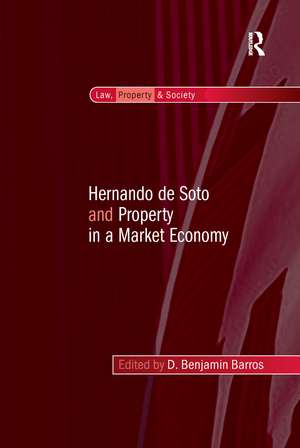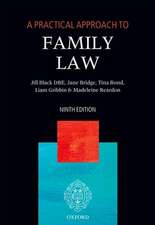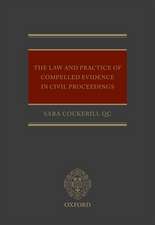Hernando de Soto and Property in a Market Economy: Law, Property and Society
Editat de D. Benjamin Barrosen Limba Engleză Paperback – 11 noi 2016
| Toate formatele și edițiile | Preț | Express |
|---|---|---|
| Paperback (1) | 464.93 lei 43-57 zile | |
| Taylor & Francis – 11 noi 2016 | 464.93 lei 43-57 zile | |
| Hardback (1) | 1054.71 lei 43-57 zile | |
| Taylor & Francis – 23 apr 2010 | 1054.71 lei 43-57 zile |
Preț: 464.93 lei
Nou
Puncte Express: 697
Preț estimativ în valută:
88.97€ • 93.12$ • 74.05£
88.97€ • 93.12$ • 74.05£
Carte tipărită la comandă
Livrare economică 31 martie-14 aprilie
Preluare comenzi: 021 569.72.76
Specificații
ISBN-13: 9781138251533
ISBN-10: 1138251534
Pagini: 244
Dimensiuni: 156 x 234 mm
Greutate: 0.35 kg
Ediția:1
Editura: Taylor & Francis
Colecția Routledge
Seria Law, Property and Society
Locul publicării:Oxford, United Kingdom
ISBN-10: 1138251534
Pagini: 244
Dimensiuni: 156 x 234 mm
Greutate: 0.35 kg
Ediția:1
Editura: Taylor & Francis
Colecția Routledge
Seria Law, Property and Society
Locul publicării:Oxford, United Kingdom
Notă biografică
D. Benjamin Barros is Professor of Law at Widener University School of Law in Harrisburg, Pennsylvania. He writes widely on property law and related topics.
Recenzii
'In Hernando de Soto and Property in a Market Economy, leading property scholars masterfully illuminate, challenge, and build on de Soto’s work, connecting it to central questions of property theory and social policy. This perceptive and multi-faceted exploration of how ownership works (or fails to work) offers essential insights to anyone interested in property rights and institutions.' Lee Anne Fennell, University of Chicago Law School, USA 'This collection is a rich exploration and critique of Hernando de Soto's contributions to our understanding of the relation between the institution of property and the market economy. It is an essential resource for all interested in the theoretical, social, economic and historical underpinnings of land titling, and more generally property law and institutions, as a tool in economic development.' Claire Priest, Yale Law School, USA
Cuprins
Introduction, D. Benjamin Barros; Chapter 1 The Costs of Regulation or the Consequences of Poverty? Progressive Lessons from de Soto, Eduardo M. Peñalver; Chapter 2 Invasions, Innovation, Environment, Carol M. Rose; Chapter 3 Culture and Capitalism: A Comment on de Soto, Gregory S. Alexander; Chapter 4 Hernando de Soto and the Histories of Property Law, Alfred L. Brophy; Chapter 5 Anticipating de Soto: Allotment of Indian Reservations and the Dangers of Land-Titling, Ezra Rosser; Chapter 6 Leaving the Body of Property Law? Meltdowns, Land Rushes, and Failed Economic Development, Rashmi Dyal-Chand; Chapter 7 The Bell Jar and the Bullhorn: Hernando de Soto and Communication Through Title, Nestor M. Davidson; Chapter 8 Red Tape and Gridlock, Larissa Katz; Chapter 9 Mercantilism, American Style, Nicole Stelle Garnett; Chapter 10 Hernando de Soto, Formal Property Systems, and the Intangible Asset Paradox, Juliet M. Moringiello; Chapter 11 The Economics of Welfare: Of Hernando de Soto and Susette Kelo, Denis J. Brion;
Descriere
This new collection brings together a diverse group of scholars to apply Hernando de Soto's work to a wide range of contemporary issues in property law and theory. Scrutinizing his contention that the institution of private property is necessary for the proper functioning of a market economy, the volume makes an important contribution to debates and controversies in property law, and to the study of mature market economies.






















